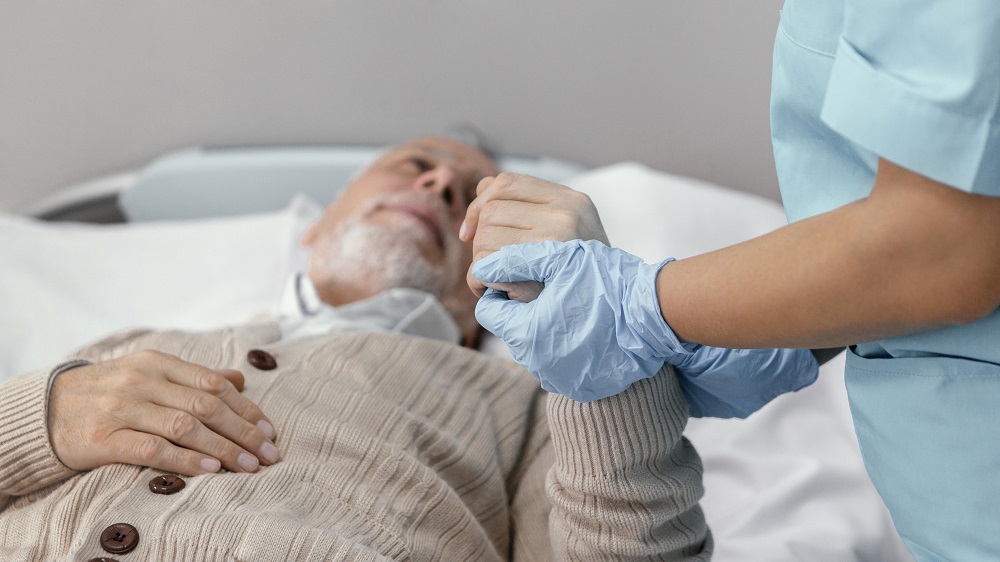Caring for Elderly Patients with Surgical Wounds

Caring for elderly patients with surgical wounds presents unique challenges. As people age, their skin becomes thinner, and their ability to heal slows down. This makes it all the more important to provide careful and consistent care to prevent complications and promote healing. Whether you are a caregiver or a family member, understanding the needs of elderly patients with surgical wounds can make a significant difference in their recovery process.
Understanding the Elderly Skin and Healing Process
One of the first things to consider when caring for elderly patients is the condition of their skin. As we age, the skin loses collagen and elastin, becoming more fragile and prone to tears and infections. For elderly patients, this means that even small surgical wounds can take longer to heal and may be more susceptible to complications like infection, delayed healing, or scarring.
The healing process in older adults is often slower due to factors such as reduced circulation, a weakened immune system, and the presence of chronic conditions like diabetes or heart disease. It’s essential to recognize these factors and take them into account when planning wound care.
Follow Medical Advice Diligently
The first step in caring for surgical wounds in elderly patients is always following the advice of their healthcare providers, particularly those specializing in wound care. These professionals can provide specific instructions on how to care for the wound, including when and how to change dressings, what medications to take, and when follow-up appointments are necessary. Their expertise ensures that the care plan is tailored to the unique needs of elderly patients and their healing process.
For instance, some patients may need specific antibiotics or pain relievers, while others may be prescribed ointments or topical treatments to support wound healing. It is critical to adhere to the prescribed plan to minimize the risk of infection and ensure the wound heals properly.
Maintaining Cleanliness and Preventing Infection
Wound care hygiene is particularly important for elderly patients, as their skin is more vulnerable to infection. It’s essential to keep the wound clean and dry, using gentle, sterile materials for cleaning. Before touching the wound, caregivers should always wash their hands thoroughly and use proper infection control practices to reduce the risk of introducing bacteria.
For elderly patients, the type of dressing used is equally important. Modern dressings, such as hydrocolloids or foam dressings, are designed to keep the wound moist, which supports faster and more efficient healing. However, caregivers should avoid submerging the wound in water or using harsh cleaning methods. Instead, use gentle, approved techniques, such as patting the wound with a damp, sterile cloth, and ensure the area is completely dry after cleaning.
Regular Inspection of the Wound
Caregivers should monitor the surgical site regularly for any signs of infection, such as increased redness, swelling, warmth, or unusual discharge. For elderly patients, early detection is key, as infections can progress more quickly in older adults. If there is any concern about the wound’s appearance or if symptoms like fever or increased pain develop, contacting a healthcare provider is crucial.
The elderly may have difficulty communicating their discomfort, so it’s important for caregivers to be extra vigilant in observing any changes around the surgical site. A timely response can help prevent complications that may lead to more serious health issues.
Choosing the Right Dressing
The choice of dressing plays an essential role in the healing process of a surgical wound. For elderly patients, the skin is often more fragile, and using the wrong type of dressing can cause irritation or even further damage. Gentle, hypoallergenic adhesive options are ideal, as they minimize the risk of skin tears when changing dressings.
As the wound heals, the type of dressing may need to be adjusted. Some wounds may require more absorbent materials, while others may benefit from dressings that help maintain a moist environment. Always consult a healthcare provider to ensure the correct dressing is used at each stage of healing.
Caring for elderly patients with surgical wounds requires attention to detail, patience, and a comprehensive understanding of their unique needs. While the process can be challenging, providing compassionate and thorough care is the key to helping elderly patients heal and regain their health.